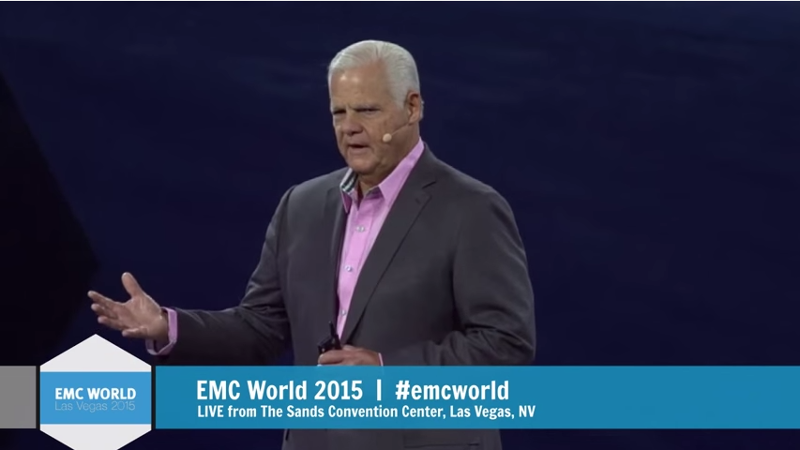 NEWS
NEWS
 NEWS
NEWS
 NEWS
NEWS
After postponing his retirement not once but twice, Joe Tucci, the 67-year-old EMC Corp. CEO who has been called the last of the enterprise technology world’s old guard, is finally hanging up his spurs. The executive is concluding his long and fruitful career with one final gambit to make or break his legacy: The formation of the largest privately-held data center supplier in existence.
The record-breaking $67 billion merger with EMC that Dell Inc. announced this morning following months of speculation will bring the industry’s most formidable storage and converged infrastructure arsenal under the same corporate umbrella as one of its leading server lineups. The combined whole will change the balance of power in the enterprise.
Or at least if Michael Dell has his way. The executive hopes that absorbing EMC’s assets will make his namesake company, which he took private in an equally ambitious 13-figure deal with Silver Lake Partners last year, big enough to withstand the changing tides of the hardware industry, where a combination of different factors is making it more and more difficult to turn a profit.
“The much larger undercurrent here is that there are hard times in hardware,” Wikibon co-founder Dave Vellante commented on the merger. “Pricing is in a slow motion decline thanks to open-source and cloud” providers that are offering CIOs to rent out infrastructure at a fraction of the cost of buying.
The wildcard that may determine the success or failure of Michael Dell’s plans to go against that current is VMware Inc., the other major factor that led to the merger. Tucci agreed the deal because the only alternative path to meeting investors’ mounting demand for a higher return on their EMC stock would have been selling off its stake in the virtualization provider and thus collapsing his growth strategy.
The move appeared to have succeeded in fending off shareholders, but whether Tucci’s long-term plans for his company will be followed under the new ownership still remains to be seen. Vellante speculates that Michael Dell may decide to prioritize VMware’s promising storage software at the expense of EMC’s core legacy business, much like what investors would have had Tucci do.
The key to braving the decline in infrastrastructure revenues will be finding the right balance among the different assets. In contrast with its legacy disk systems, Wikibon chief executive David Floyer pointed out that EMC’s flash technologies hold a great of strategic promise. But regardless of what Dell decides to keep and what to “jettison”, in Vellante’s words, a complicated and painful restructuring will be needed to make the combined organization competitive.
That’s why Dell anticipates the deal will take a full year to complete, time that rivals like Hewlett-Packard Co, which is undergoing a massive structural change of its own, may exploit to their advantage. That is set to add yet another level of complexity to the company’s monumental quest to change the very trajectory of the industry.
Mike Wheatley contributed to this article.
Support our mission to keep content open and free by engaging with theCUBE community. Join theCUBE’s Alumni Trust Network, where technology leaders connect, share intelligence and create opportunities.
Founded by tech visionaries John Furrier and Dave Vellante, SiliconANGLE Media has built a dynamic ecosystem of industry-leading digital media brands that reach 15+ million elite tech professionals. Our new proprietary theCUBE AI Video Cloud is breaking ground in audience interaction, leveraging theCUBEai.com neural network to help technology companies make data-driven decisions and stay at the forefront of industry conversations.